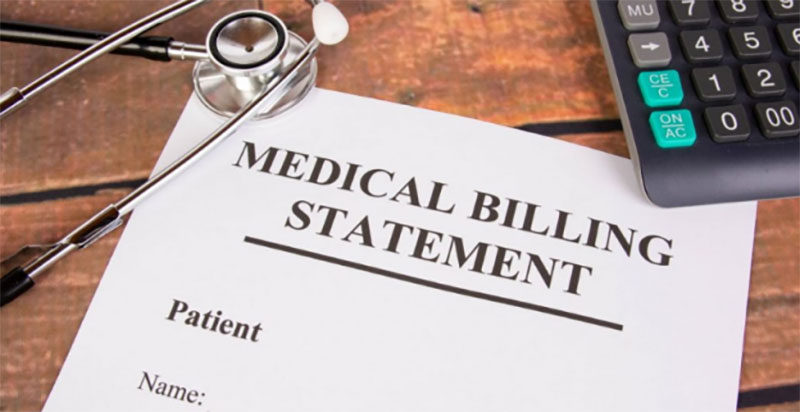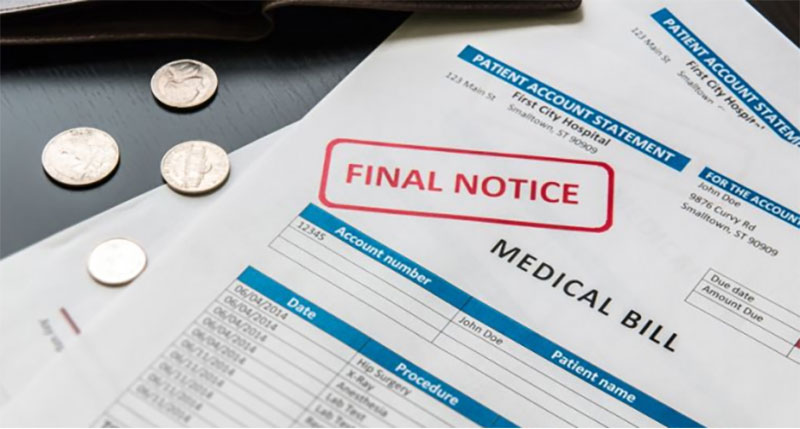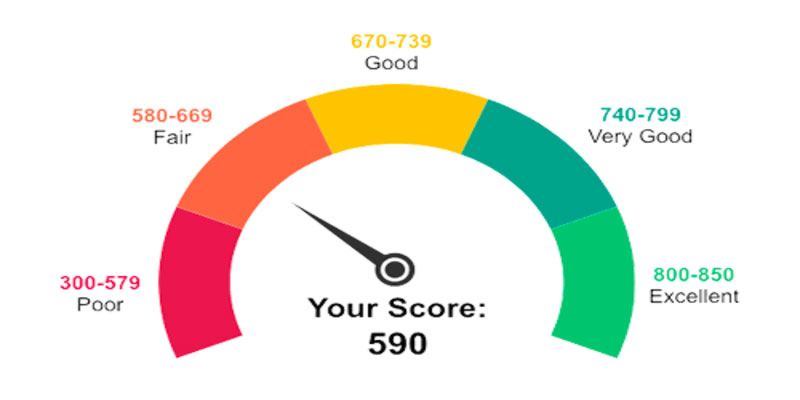
Consumers may feel overwhelmed by the cost of healthcare. Only the most comprehensive health plans will cover a patient's medical expenses, leaving individuals without insurance to worry about how they will pay for their care out of pocket.
Twenty percent of American families are carrying medical debt, according to a Consumer Financial Protection Bureau research from early 2022—sixty-nine million of us. Medical debt accounts for 58% of all outstanding invoices turned over to collections.
Understanding how to navigate the system and apply for financial aid could prevent you from going bankrupt due to medical expenses. It would help if you never tried to avoid paying back a loan. Talk to a hospital or healthcare practitioner about your condition to reach a reasonable resolution. Here are some strategies for bargaining down or having medical fees completely waived.
1. Help From A Guide Who Specializes In Healthcare Debt

A man is seen in this close-up, viewing his computer while wearing headphones with a microphone.
If you feel overwhelmed, a counselor or advocate can help you negotiate your medical fees. A qualified counselor can assist with medical billing, liaise with your healthcare provider, help you create a workable budget, and craft a unique plan. Verify the counselor's or advocate's membership in a recognized professional organization, such as the Financial Counseling Association of America (FCAA) or the National Foundation for Credit Counseling (NFCC). You can contact one of those resources directly if you need help locating a therapist or an advocate.
2. Healthcare Debt Card
Due to the increasing cost of healthcare, banks have issued credit cards whose sole purpose is to settle medical bills. These cards have pros and downsides, despite the fact that they can help you save money and, in some situations, allow rapid access to treatment if you need it. Be wary of paying for treatment upfront when you may not receive complete treatment and of excessive interest rates.
4. Consolidation Of Debt And Unsecured Loans
A couple uses their computer together while sitting at a table and talking about their medical expenses.
A personal loan or debt consolidation may be an option if you have medical expenses too large to pay off through a payment plan. Due to the lack of security required for nonpayment, the interest rates on personal loans are relatively high.
The same is true for the process of consolidating debt. All of your medical expenses can be rolled into one manageable installment loan or credit card payment with the help of debt consolidation. A single monthly payment would reduce the debt. When compared to setting up a payment plan with your doctor's office, which may be able to offer a zero-interest payment plan, the interest rate you will be charged here is likely to be significantly greater.
5. Request A Hardship Payment Plan Or Other Forms Of Financial Aid

A hardship exemption or financial aid may be available from your hospital or healthcare provider if you are in a low-income category and have significant medical expenditures. Several hospitals provide charity or assistance programs to aid with the financial burden of medical care. You can also check with your city, county government, or any non-profits in your area to see if they give any financial aid. You can learn more about these choices by contacting your service provider and local government office.
Medical Bills Without Health Insurance
If you have a long history of care with your doctor, it may be possible to negotiate for a discount or flexible payment terms. Get an explanation from the billing department for any hospital expenses. A thorough audit of all processes is the most vigorous defense against accidental errors or intentional fraud. It is okay to dispute a high fee that was not expected.
People with modest incomes and their families can receive assistance through Medicaid, a federal/state program. If you meet the requirements, use it.
Finally, several states mandate that hospitals provide financial assistance to low-income and uninsured patients. Certain hospitals and clinics have established charitable giving programs for patients who cannot afford medical care.
Medical Bills With Health Insurance
Read your policy thoroughly and repeatedly; no one likes reading policies, but the more time you spend with yours, the more you learn. Talk to your insurance provider if you believe any out-of-pocket expenses should be reimbursed. Most insurers have a time limit on when you can challenge a benefit, so if you think you are entitled to reimbursement or that your healthcare provider should be compensated, you should file an appeal as soon as possible. It is usually at most 30 or 60 days.
Expect delays and rejections, and keep meticulous notes of all your communications. Keep detailed documents in case you need to submit a formal complaint with the insurance commission in your state or consult a consumer law attorney.


